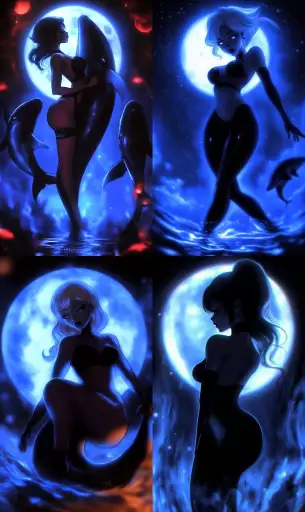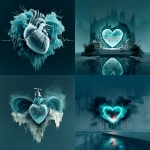Explore the Best AI Image Gallery

Brushstrokes of the Future: Exploring AI-Generated Images in Art
The art world is undergoing a seismic shift with the emergence of artificial intelligence (AI) capable of generating stunningly realistic and imaginative images. This technology, powered by complex algorithms and vast datasets, is blurring the lines between human creativity and machine ingenuity, sparking both excitement and debate within the creative industry.
A New Creative Frontier
AI-generated images are no longer a novelty; they are becoming increasingly sophisticated, capable of producing everything from photorealistic portraits to abstract art pieces that challenge conventional notions of beauty and aesthetics. Artists are embracing this new tool, using it to enhance their creative processes, explore novel concepts, and push the boundaries of artistic expression.
Several platforms have emerged, offering user-friendly interfaces for generating AI-powered artwork. These platforms often allow users to input text prompts, guiding the AI in creating images that match their vision. The ease of use and accessibility of these tools are democratizing art creation, empowering individuals with limited technical skills to generate compelling visuals.
Impact on the Art Industry
The integration of AI into art has profound implications for the industry as a whole.
- New Opportunities: AI-generated images open doors to new artistic expressions, collaborations, and revenue streams.
- Efficiency and Scalability: Artists can leverage AI to streamline repetitive tasks, allowing them to focus on higher-level creative endeavors.
- Accessibility: The accessibility of AI art generation tools empowers individuals from diverse backgrounds to participate in the creative process.
Ethical Considerations
While the potential of AI-generated images is undeniable, it also raises important ethical considerations:
- Copyright and Ownership: Questions arise regarding the ownership of AI-generated artwork, particularly when algorithms are trained on copyrighted material.
- Bias and Representation: AI models can perpetuate existing biases present in the training data, potentially leading to skewed or inaccurate representations of certain groups.
- Authenticity and Value: The increasing prevalence of AI-generated art raises questions about the value and authenticity of human-created artwork.
Future Trends
The field of AI-generated imagery is rapidly evolving, with continuous advancements pushing the boundaries of whats possible.
- More Realistic and Stylized Outputs: Expect to see even more realistic and diverse styles emerge as AI models become increasingly sophisticated.
- Personalized Art Experiences: AI could be used to create personalized artwork tailored to individual preferences and tastes.
- Interactive and Immersive Art: AI-generated imagery will likely play a key role in creating interactive and immersive art experiences.
Conclusion
AI-generated images are transforming the art world, presenting both exciting opportunities and ethical challenges. As this technology continues to evolve, it will be crucial to navigate these complexities responsibly, fostering a future where AI augments human creativity and enriches our artistic experiences.
